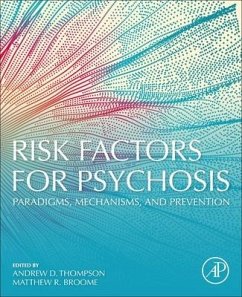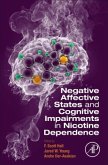Risk Factors for Psychosis: Paradigms, Mechanisms, and Prevention combines the related, but disparate research endeavors into a single text that considers all risk factors for psychosis, including biological, psychological and environmental factors. The book also introduces the ethics and current treatment evidence that attempts to ameliorate risk or reduce the number of individuals with risk factors developing a psychotic disorder. Finally, the book highlights new research paradigms that will further enhance the field in the future.
Psychotic disorders affect more than 50 million people worldwide, creating a devastating effect on lives and causing major financial and emotional impact on families and on society as a whole. The search for risk factors for psychosis has developed rapidly over the past decades, invigorated by changes in the thinking about the malleability and treatability of psychotic disorders. The paradigms for investigating psychosis risk have developed, often in parallel, but there has been no book to date that has summarized and synthesized the current approaches.
Psychotic disorders affect more than 50 million people worldwide, creating a devastating effect on lives and causing major financial and emotional impact on families and on society as a whole. The search for risk factors for psychosis has developed rapidly over the past decades, invigorated by changes in the thinking about the malleability and treatability of psychotic disorders. The paradigms for investigating psychosis risk have developed, often in parallel, but there has been no book to date that has summarized and synthesized the current approaches.








